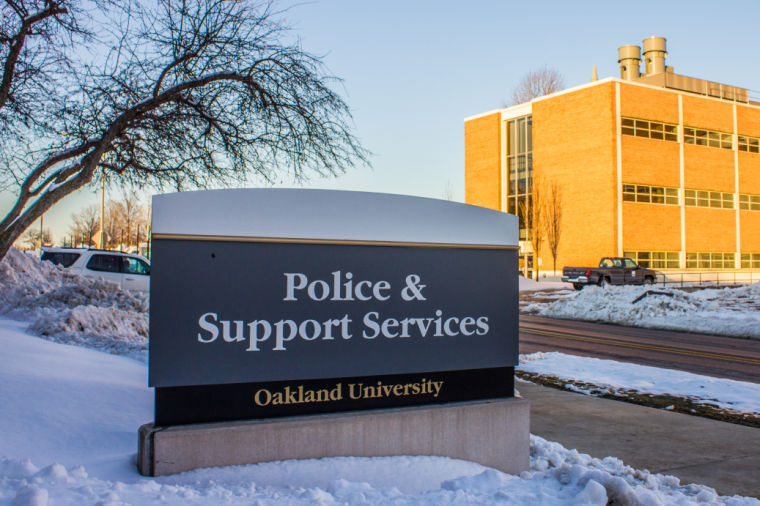Grievance filed regarding faculty member’s removal
OUPD escorted and barred a professor from campus after a nine minute video from the class was released to police last fall. The OU chapter of American Association of University Professors (AAUP) has filed a grievance, calling the removal process unjust.
The Oakland University chapter of the American Association of University Professors has filed a grievance about the removal and barring of a faculty member which took place on September 27, 2013, according to Kevin T. Grimm, president of the OU chapter of the AAUP.
“The faculty member was excluded from campus, from all contact with students, and was directed to take several medical and psychological exams by the Oakland University Police Department,” Grimm wrote in an email.
The catalyst was a 9-minute student recording of the professor explaining how to turn in papers, Grimm said. The professor’s identity has not yet been revealed. The Post has submitted a Freedom of Information Act request for the police report of the incident.
There are serious concerns from several faculty members about the procedures used by the Behavior Concerns Committee to bar the professor from campus. The BCC was created in Fall 2012 to address reports of “inappropriate, threatening or alarming” campus behavior.
The BCC held a hearing at which it designated the faculty member persona non grata, banning the professor from campus. The professor was not given an opportunity to attend this hearing.
“While there are clear contract provisions stipulating the process under which a faculty member can be required to undergo medical testing, they were not followed, hence the Association filed a grievance,” Grimm said.
The Post got comments from three faculty members. An OU spokesperson and OUPD had no comment on the issue.
Kevin Grimm:
“The issuing of the [persona non grata status] seems totally unjustified. The professor was not only removed from campus upon an order of the campus police but was also found to violate a University ordinance without any manner to challenge that finding,” Grimm said.
“We have performed a thorough investigation and have found nothing that demonstrates that this professor posed any threat whatsoever to the safety of people on campus or violated any University Ordinance, despite the University’s claim.”
The professor was not given a chance to defend his or herself, Grimm said. Also, no records exist of the BCC meeting that decided to bar the professor, according to OU.
“This action has caused great harm to the professor’s career and reputation,” he said.
Karen Miller:
“This faculty member was denied fundamental due process,” wrote Karen Miller, past president of the OU chapter of the AAUP and associate professor of history.
The university did not follow the faculty contract process for dealing with faculty discipline issues, she said.
“It is disturbing that this faculty member’s ‘Weingarten Rights’ were ignored. These rights were established in the 1975 Supreme Court case, NLRB v. J.Weingarten and have never before been challenged by Oakland University,” she said.
Anyone whom the university is considering banning deserves to defend his or herself, Miller said. The opportunity was absent in this incident.
“No record of this hearing was maintained,” she said. “Nor was there any right of appeal or redress to the so-called Behavior Concerns Committee’s ruling. These are fundamental expectations and they have not been met in this case.”
Christine Stover:
Persona non grata is a serious label, wrote Christine Stover, adjunct faculty, coordinator of Broadcast Services and faculty advisor for WXOU.
“It essentially means that Oakland University considers the individual to be too dangerous to step foot on the property,” she said.
Because the faculty member was not invited to the BCC hearing, OU needs to review its protocol and reopen the case, she said.
“And furthermore, I wish the procedures that have the ability to seal someone’s indefinite fate were more transparent,” she said.
The grievance is awaiting arbitration, Grimm said, meaning it is being settled by a third party out of court in a legally binding decision.
That decision might affect all OU faculty.
“The faculty member has not been put on leave, is still drawing salary and benefits, and is attempting to pursue a scholarly career from home,” Grimm said. “We remain shocked, however, that such a situation could even arise at OU.”












